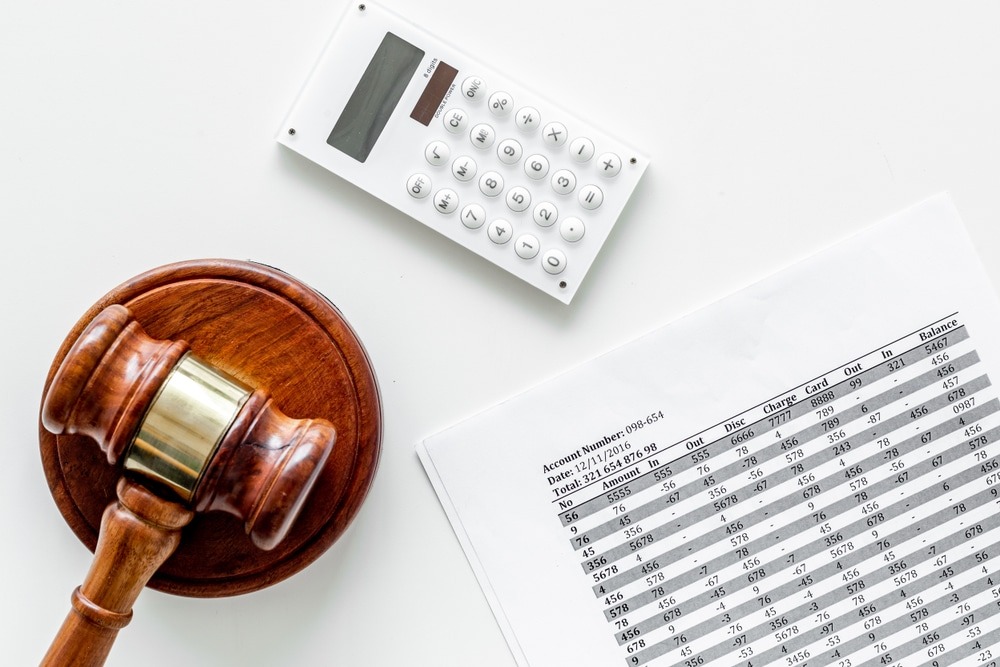
When you declare bankruptcy, you will file a petition in federal court. Once your petition for bankruptcy is filed, your creditors will be informed and must stop pursuing any debt you owe. The court will then request certain information from you, including:
- The total amount of debt you owe
- A complete list of all your creditors
- An accounting of your total income
- An accounting of your outgoing expenses
You are permitted to represent yourself in bankruptcy court. You are also allowed to hire our bankruptcy lawyer team who can serve as your advocate and help you navigate the complicated process of what happens if you declare bankruptcy.
Having your debt discharged or reorganized in bankruptcy court can take a lengthy period of time. Should you get a lawyer, your lawyer can help you understand the relevant timeline in your bankruptcy case.
What to Expect When You File for Bankruptcy
Filing for bankruptcy is a legal process that offers relief from overwhelming debt and provides a path to financial recovery:
Debt Discharge:
Debts discharged through bankruptcy are no longer legally enforceable, meaning creditors cannot pursue collection efforts.
- Impact on Credit Score:
Bankruptcy will significantly lower your credit score, with the effects lasting several years. - Asset Liquidation or Repayment Plans:
The type of bankruptcy you file determines how your debts are managed:
Chapter 7: You may need to sell certain assets to repay creditors, with most debts eliminated within a few months.
Chapter 13: You retain your assets but follow a repayment plan over several years, which can reflect more favorably on your credit report. - Public Record:
Bankruptcy filings are recorded in the Public Access to Court Electronic Records (PACER) system, which allows anyone with an account to view case details. - Homeownership Delays:
Depending on your bankruptcy type, it could take one to four years before you qualify for a new mortgage. - Chapter 11 Fees:
If you file for Chapter 11 bankruptcy, you may be required to pay a quarterly fee to the U.S. Trustee, with the amount based on your expenses for that period.
What happens when you file for bankruptcy?
In addition to putting a stop to relentless phone calls and other debt collection efforts, filing for debt relief through bankruptcy can also have advantages that you should be aware of. Advantages of filing for bankruptcy protection include:
- A new start that can help you create a healthy financial future
- The ability to retain much, if not all, of your personal property and assets
- Your creditors will be required to cease all debt collection actions
In addition to putting a stop to relentless phone calls and other debt collection efforts, filing for debt relief through bankruptcy can also have disadvantages that you should be aware of. Disadvantages of filing for bankruptcy protection include:
- Filing for bankruptcy stays on your credit profile for seven to 10 years
- Filing for bankruptcy can lead to higher interest rates when you are eventually able to obtain financing
- You will be required to take a court-approved credit counseling course
- You cannot use bankruptcy to discharge overwhelming debt again for at least four to eight years, depending on what type of bankruptcy you filed
Each individual or business debt load is unique and requires close scrutiny and careful debt reduction planning. Your lawyer can take a clear, objective, and comprehensive view of your financial situation and help you create a plan to reorganize, reduce, or eliminate your debt.
Personal Injury Lawyer Near Me 828.286.3866
Choose the Right Bankruptcy Filing for You
We are proud to represent our clients in four primary areas of bankruptcy relief. Called “chapters,” each of these forms of bankruptcy has its own advantages and disadvantages. The four chapters used for filing for bankruptcy, where we help clients find debt relief, include:
- Chapter 7: Straight bankruptcy, where debts are fully forgiven with few exceptions.
- Chapter 11: Complex business bankruptcies with debt reorganizations and restructures.
- Chapter 12: Debt relief and repayment plans for family farmers and family fishermen.
- Chapter 13: Debt relief for income earners that can help stop foreclosures and other looming debt recovery efforts.
When you decide to declare bankruptcy, your lawyer will help you choose the right bankruptcy chapter for your financial situation. Filing for bankruptcy is a complex, time-consuming procedure. Your lawyer can help you understand and navigate the filing process from your initial petition to final discharge.
Chapter 7 and Chapter 13 Bankruptcy Require a Means Test
While the decision to file for bankruptcy is ultimately a personal one, in certain types of bankruptcy, the court will ask you to take a means test. This test is given to understand your income and expenses.
The means test:
- Is required for filers whose income is higher than the state median
- Will assess and measure your expenses and disposable income
- Measures your ability to pay the money owed to your creditors
The lawyer who represents you will assist you with the documents and calculations associated with the means test. He will also explain its importance and what happens when the test is complete.
Bankruptcy Provides More Than Debt Relief
Bankruptcy gives you relief from insurmountable debt and the chance to make a new financial start. It also gives you peace of mind by providing relief from relentless and invasive credit collection measures.
Once you declare bankruptcy, you benefit from an automatic stay. It will immediately notify your creditors of your status and bar them from contacting you via email, USPS mail, or telephone.
Your lawyer will explain how and when the automatic stay goes into effect, how your creditors are notified, and what happens if your creditors continue to contact you. You may be asked to attend a meeting of your creditors and answer questions about your debt load. Your attorney may also accompany you to this meeting.
Secured Debts Versus Unsecured Debts
Anyone can file for bankruptcy relief regardless of how small or large their debt is. When you file for bankruptcy, you are required to list all the debts you owe. The court does not consider all debt equally.
It recognizes two types of debt—secured and unsecured—as follows:
- Secured debts are those where the original loan was backed up with property or collateral. Common secured debt includes a mortgage or vehicle loan.
- Unsecured debts are those where the original loan was offered based solely on your credit. These typically include credit cards, medical bills, and other bank loans.
Your bankruptcy lawyer will explain how the court weighs each type of debt. He will also clarify which debts are dischargeable depending on the bankruptcy chapter you choose.
You Can Discharge Debt Through Bankruptcy
When you file for bankruptcy protection, a discharge from the court will relieve you of your obligation to repay your creditors for certain debts. As noted, once your debt is discharged, your creditors cannot contact you or attempt to collect the debt in any way. A discharge of your debt is also permanent and final for all unsecured debt you include in your bankruptcy filing.
The timing of your discharge will vary according to the type of bankruptcy you filed. A Chapter 7 bankruptcy discharge order can take as little as four months, while a Chapter 13 bankruptcy discharge can take three to five years.
If you are represented by a lawyer in your bankruptcy filing, you and your lawyer will each receive a copy of your debt discharge order. Your lawyer will help you understand what happens if you declare bankruptcy and which debts were discharged by your bankruptcy filing, as well as those you might still be obligated to pay.
Can I File for Bankruptcy on My Own?
You can file for bankruptcy on your own, but the process is long and complicated, and you could benefit from the guidance and clarity a bankruptcy attorney can provide. Even the U.S. Courts recommend working with an attorney to help you fully understand your options, exemptions, bankruptcy’s benefits, and the complexities of the process.
A bankruptcy lawyer will:
- Be familiar with applicable state and federal laws
- Obtain all necessary paperwork and documentation
- Explain files, schedules, and other paperwork
- Represent you at hearings and in court
For many bankruptcy filers, an important benefit of hiring a bankruptcy lawyer is their peace of mind. This comes from knowing each step is being met, and your fresh financial start will be error-free and effective.
Explore Your Bankruptcy Options
Get the financial relief you are entitled to by filing for bankruptcy protection. Our team represents individuals and small business owners in Chapter 7 and Chapter 13 bankruptcy cases. We can also provide help filing for Chapter 11 reorganization bankruptcy and Chapter 12 bankruptcy for family farmers and fishermen.
We can help you through the petition and filing process. We can help you retain your assets when you choose Chapter 7 bankruptcy. We can even help you restructure financial debt through other bankruptcy filings with complex financial structures or extremely large debt loads. Call Farmer & Morris Law, PLLC to speak to a member of our client intake team and learn what happens if you declare bankruptcy today.









